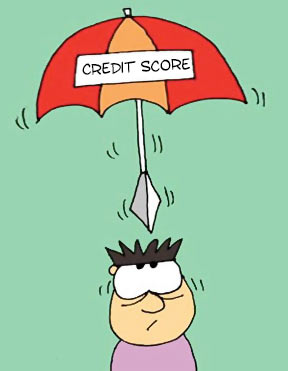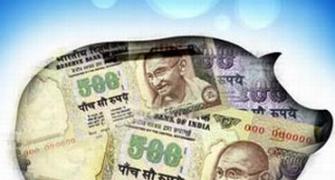
Outright fear and lack of awareness can harm your CIBIL score, says Abhishek Agarwal
If you are one of those people who take their finances seriously, you may know all about the CIBIL reports and CIBIL scores. However, many people realise the importance (at times existence) of something like credit score only when they face an unfortunate experience of their loan application getting turned down because of low credit score.
In today's financial market, CIBIL score is gaining much attention from customers and institutions alike. Still, even after more than a decade and half of its inception, the working of CIBIL has remained somewhat a mystery to the customers. Some have outright fear of CIBIL scores and others have developed several myths due to their lack of awareness. Here are 5 common myths that are associated with CIBIL scores.
1. CIBIL blacklists people with low credit score
Most people tend to think that if they have a bad payment record, they will be blacklisted by the CIBIL and will get no further loan from anywhere. This has created apprehensions in customers' mind regarding loans and credit scores. However, the truth is, CIBIL does not create or maintain any list to ostracise those with low credit score.
It only calculates your credit score based on your repayment history and utilisation rate. If your loan application is rejected by a bank or financial institution it may be due to your limited repayment capacity, irregular payment history or high utilisation ratio.
2. CIBIL Score is pro bank and financial institution and anti customer
Another misconception about CIBIL scores is that it is calculated only to help the banks and financial institutions make lending decisions. The truth of the matter is that your bank or financial institution may or may not rely on the CIBIL scores to approve or reject your loan application.
If the bank feels that you have the capacity to repay your loan in future, they may approve your loan application, albeit at a higher interest rate. As for the customers, CIBIL scores help them instil the habit of financial discipline. This ensures that the credit lines are open for them as and when they need.
3. Closing existing credit line has no impact on credit score
There are two important factors that decide your credit score. One is your repayment history and other is your utilisation rate. If you have a credit card with clean payment history and zero outstanding balance, closing it will have detrimental effect on your credit score.
This is because your utilisation ratio will increase considerably. This will mean lower credit score.
4. Maxing out on your credit card is alright
Many people believe that as long as they are making regular and full payments, it is okay to max out on their credit cards. However, this is a misconception, as maxing out on your credit cards can negatively impact your credit score.
The utilisation ratio again plays a major role here.
As a rule of thumb, you should use only 30 percent of the available limit to avoid damaging your credit score.
The financial institution or bank can report your balance at any time of the month, so even if you are paying the full amount at the end of the cycle, your credit score may have negative impacts.
5. The best credit is no credit
This is again a misconception. Having zero credit does not improve your credit scores. If you do not have any credit it means that lenders do not have any data to make a viable decision. This could limit your chances of getting a loan when you need it.
Therefore, even if you do not need extra money at this moment, it is still better to have some credit lines, just for the sole purpose of building a good credit score and financial habit.
The author is Co-founder and Director, Credit Vidya.










